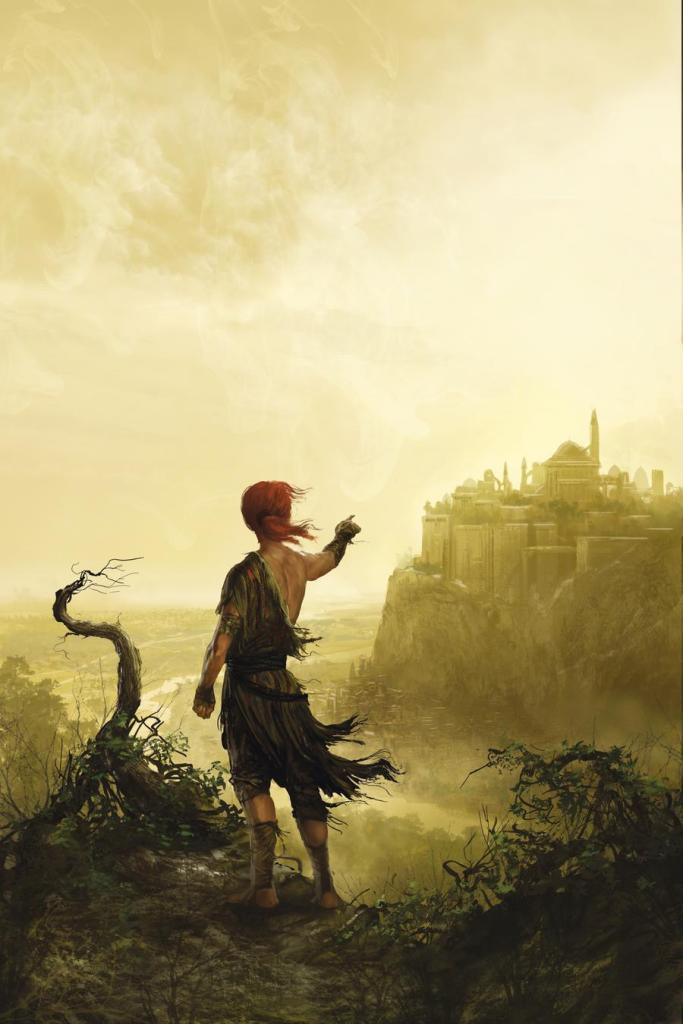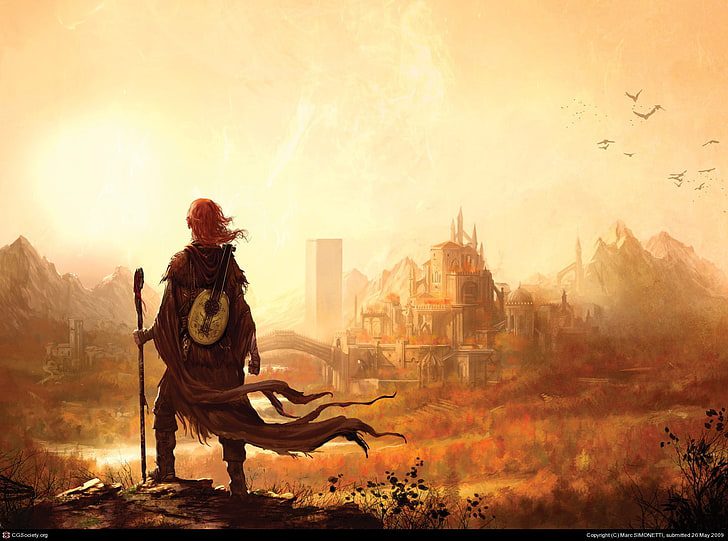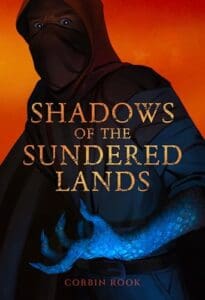
During our annual reread of The Name of the Wind, David had the lovely idea that we should collaborate on a defense of Kvothe. I was only too happy to oblige!
If you have read the Kingkiller Chronicle or even just the first book, The Name of the Wind by Patrick Rothfuss, you probably know that the main character Kvothe can be a very divisive character. So much so that we would say that most people who do not like him end up not liking the story either or even hating it/him. We like to think that we fall into the middle category where we really love his character, but can understand where people are coming from when they say they are not a fan. The goal for this post is not to make you change your mind about Kvothe if you dislike him, but to candidly discuss what we think makes him a great character despite his flaws. In order to do that we’re going to take two of the more common things that people say they dislike about Kvothe’s character and dissect them by going through the story and using specific examples to make these arguments.
*SPOILERS for both of The Kingkiller Chronicles books will follow*
The main arguments for why people hate Kvothe are:
1) Kvothe is a Gary Stu
2) Kvothe as a person is unlikable
This is pretty interesting because on one hand, people think that Kvothe is too close to perfection. On the other, people think he has too many unlikeable characteristics to enjoy him as a person.
Then you have us, who think that Kvothe is a beautiful combination of gifted and flawed. David and I discussed this at length over the last few years, and I put our thoughts together below. Bear with us, this may take a while:

A lot of people look at Kvothe and see that he’s naturally gifted in many areas and view that as unrealistic. People go so far as to call him a Gary Stu; someone unrealistically free of weakness. People tend to forget that the essence of this novel revolves around myths, legends, and folklore. Kvothe IS extraordinary, so much so that people all over the world have heard about him. Many people we think of as legendary are extremely gifted beyond the limitations of the average person. There’s two types of people that have the reputation that Kvothe does: those that have stumbled into it lazily and those that worked extremely hard to get there. Kvothe, while naturally talented, has worked his butt off to become this fabled hero. When we look at Kvothe, we see a few things: he’s musically accomplished, academically gifted, brave, and confident.
We would argue that Kvothe isn’t as close to perfection as people claim, though. When it comes to academics, he spent a lot of time learning from Abenthy. That is time that other kids might use to play, but Kvothe grew up around adults. That stimulation is likely to make you more mature and capable of deeper thought. Music is something that is in his bones, and his sharp mind obviously adds to the ability to excel at that. As for being unnaturally brave, he learned to be courageous as time went on. When he was on the streets of Tarbean, he watched other children get beat. Though it is pretty ambiguously stated, it’s very probable that he watched the sexual assault of another boy because he was afraid of the fury that the attackers would turn on him. Regrets like these stuck with him and, in time, made him more likely to face wickedness when he had the abilities to do so. Much of Kvothe’s bravado is a mask that he wears to protect himself and others. Part of this is due to his stage training, as well. He isn’t as brave as he looks, he’s just quick thinking and a natural actor.
“We understand how dangerous a mask can be. We all become what we pretend to be.”
It’s easy to take this forced bravado as Kvothe being full of himself and to forget that this is the defense mechanism of a boy who has experienced an extreme amount of death, prejudice, and trauma. Another strike against him in the perfection category: his trauma has given him a slight thirst for revenge. Whether it’s Ambrose (Jackass, Jackass) or Pike (setting him AND his measly possession afire in Tarbean), Kvothe’s pride gets the best of him. It’s often to his detriment. He is someone who is exceptionally smart but will overlook the consequences of his actions. Kvothe goes head to head with Master Hemme, going as far as making a wax doll of him and using sympathetic bindings to burn him in front of a class. Kvothe does this because he’s sick of Hemme being a bully to his students. Hemme is sexist, racist, bigoted, and just a truly horrible person, so someone needed to stand up to him. While this is courageous and noble, Kvothe doesn’t stop to think that he’s just made a lifelong enemy of a prominent figure at The University. We see this come back to bite him in the butt a few times, and undoubtably will become quite the issue in the third book.
Kvothe is one of those people who can be irritating because he’s so naturally talented, but he’s also one of the most selfless people in the story. He risks his life to save Fela from a fire. Additionally, his constant feud with Ambrose was started so that he could give Fela reprieve from Ambrose’s advances. He’s willing to make his own life harder to help others. He loses sleep to visit Auri. He faces conviction for killing rapists and kidnappers. He knows that money comes back around and shares the wealth whenever he receives any sort of amount. Money is essential to living for him, but he’s not greedy.
Additionally, while Kvothe has a habit of sticky fingers, he never steals from anyone who needs it or has shown him kindness. In fact, even when he needs the charity that is being bestowed upon him, he tries to do something kind in return. He leaves money for the shoemaker, he returns to Trapis and offers him money for all the help he received from him during the time in Tarbean. He takes care of Auri, in his own way, when others would brush her off or report her.
“If I seem to wander, if I seem to stray, remember that true stories seldom take the straightest way.”
Kvothe is a performer to his bones and he set out to make himself into a legendary figure. We see how this could make him unlikeable, some people believe that he’s an unreliable narrator. He very well might be, but as we see within the folklore and tales surrounding other beings and people in this world, there’s usually at least a grain of truth that the stories sprout from. We are not concerned with Kvothe being an embellisher, in fact, he admits that he has lied to boost his reputation. We do believe he’s been quite truthful at times, too. What person doesn’t see their own accomplishments with a bit of rose-colored glasses? It also takes a certain kind of person to admit their cowardice. It takes a certain kind of man to openly weep, whether it is from the way that music moves him, from the generosity of strangers, or from the relief of being accepted into the University of his dreams. Personally, we can safely say that Kvothe is one of the most openly emotional male protagonists in fantasy that we have read. It’s important to see this boy/man of mythical proportions be humbled by emotion; it’s important for men to realize they can be sensitive and powerful at the same time.
One of the most outlandish things about Kvothe is his sexual prowess when he first meets Felurian. We can accept that Felurian doesn’t really care who she sleeps with, she’s just trying to lure men into her trap. Kvothe is the hormonal teenage boy who couldn’t resist. He probably wasn’t as good as he thought he was, initially. There’s that Kvothe confidence. Though he learns the secrets of the sheets from her, we would do well to look past the glaringly obvious sex with Felurian in this part. This is about showing the strength of Kvothe’s mind; showing that Kvothe IS already a Namer and possibly a Shaper. It’s about giving us a link to the Fae world and potentially, Bast. This is more about adding to Kvothe’s legendary status as a man who tames mystical creatures and escapes with his life and his wits. Additionally, this moment and the moments with the Adem shape Kvothe’s outlook on sex.
When it comes to women, it’s been argued that Kvothe sexualizes women. To us, it is the opposite. Even while he is intoxicated, he absolutely abhors the idea of men coming onto a woman without their consent. As a woman, I personally view him as an advocate for women and their right to their own bodies. Though there’s a very good chance that Denna sleeps with men to gain advantages in this world, he respects her decisions to make these choices. He recognizes the way she hustles to make it in life. He never slut-shames her. SO many reader of this novel dislike Denna because of her wielding her body as a weapon of survival. Even once Kvothe becomes more sexually experienced, he doesn’t assume he has a right to her body because of her way of life or their flirtation.
Is he unlikeable because he finds most of the women around him attractive? We have never gotten the sense that Kvothe thinks these women are attractive merely physical. Bast makes a remark that Denna wasn’t as good looking as Kvothe thought and that Kvothe describes most of the women around him as beautiful. To this, Kvothe replies crossly, “We are more than the parts that form us, Bast.” Kvothe SEES people, and the women he surrounds himself with are smart and powerful women. That is what he finds attractive about them, among other personalities traits. And truly, he is never vulgar or disrespectful towards women. This is more than could be said for many of the male characters I’ve read throughout the years.
Does this make Kvothe perfect? No. He’s full of imperfections. Most of his notable traits work to his success and his demise equally. His passion can get his foot in the door where he’d otherwise be denied, but it also gets him almost killed time and time again. His appreciation of women is respectful, but does not stop him from breaking hearts or getting his heart broken. His wits are sharp, but they are also sharp enough to cut into those around him. His courage is admirable, but downright stupid at times. His curiosity has taught him some of the greatest mysteries of the world. Naming being one of them, which also led to him throwing himself off a roof at the bequest of his professor. His curiosity, wits, and courage are also likely the reason he is now hiding in an inn, all of his knowledge and gifts wasted. Kvothe is an amazingly talented but flawed man. He’s a legend of great renown and a cautionary tale. He is equal parts triumph and tragedy.

“It’s like everyone tells a story about themselves inside their own head. Always. All the time. That story makes you what you are. We build ourselves out of that story.”




[…] can’t seem to work up the motivation to read. How to Know When it’s Time to Quit a Book In Defense of Kvothe: A Candid Look at a Divisive Character—it’s odd that such a beloved character needs a defense, but, I think even the most ardent […]